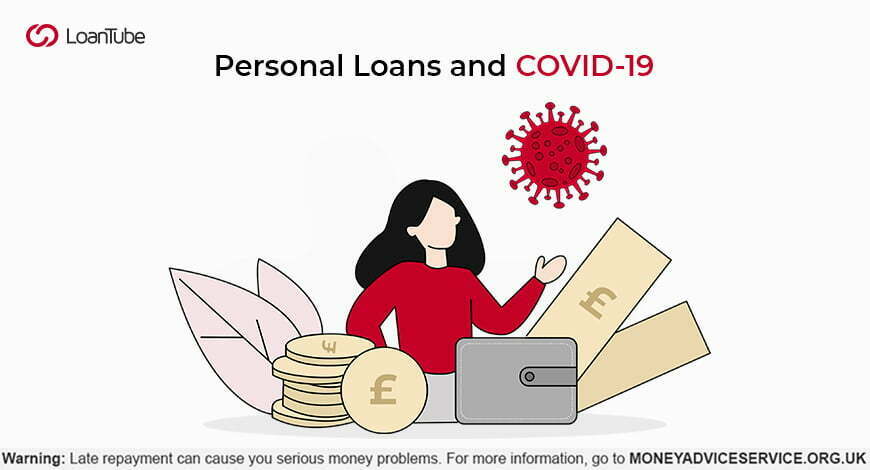covid-19 Personal Loans For Individuals
COVID-19 Personal Loans for Individuals: Navigating Financial Hardship
The COVID-19 pandemic has presented unprecedented challenges, impacting not just public health but also the financial stability of individuals and families worldwide. Job losses, reduced work hours, and unexpected medical expenses have created a significant strain on household budgets. In response, many individuals are exploring personal loans as a means to bridge the financial gap and regain stability. This article explores the role of COVID-19 personal loans, helping you understand your options and make informed decisions.
Understanding the Need for COVID-19 Personal Loans
The economic fallout from the pandemic has been widespread. Many people have found themselves facing sudden unemployment or significant income reduction. Essential expenses like rent, utilities, and groceries remain constant, creating a difficult situation for those without adequate savings. Furthermore, medical bills associated with COVID-19 infection can add a substantial burden to already stretched finances.
Personal loans offer a potential solution by providing a lump sum of money that can be used to cover these essential expenses. They can also be used for debt consolidation, helping to streamline existing debt obligations into a single, more manageable monthly payment.
What Are COVID-19 Personal Loans?
In essence, a COVID-19 personal loan isn't a specific type of loan distinct from traditional personal loans. Instead, it refers to the purpose for which the loan is used: to address financial challenges directly resulting from the pandemic. These loans are typically unsecured, meaning they don't require collateral like a house or car. This makes them more accessible to a wider range of borrowers, but also potentially carries a higher interest rate.
How to Use a Personal Loan During the Pandemic:
*
Covering Essential Expenses:
Paying for rent, mortgage, utilities, groceries, and other necessary living costs. *Medical Bills:
Addressing expenses related to COVID-19 testing, treatment, and recovery. *Debt Consolidation:
Combining high-interest debts (like credit card balances) into a single loan with a potentially lower interest rate. *Unemployment Gap:
Providing a financial cushion while searching for new employment opportunities. *Small Business Support:
Though technically a personal loan, some individuals may use these funds to support their small businesses impacted by the pandemic.Factors to Consider Before Applying
Before applying for a personal loan, it's crucial to carefully evaluate your financial situation and understand the terms of the loan. Here are some key factors to consider:
*
Interest Rates:
Compare interest rates from multiple lenders to secure the most favorable terms. Even a small difference in interest rate can save you a significant amount of money over the life of the loan. *Loan Terms:
Understand the repayment schedule and loan term (the length of time you have to repay the loan). Shorter loan terms generally mean higher monthly payments but lower overall interest paid. *Fees:
Be aware of any origination fees, prepayment penalties, or other associated fees. *Credit Score:
Your credit score plays a significant role in determining your eligibility for a loan and the interest rate you'll receive. Check your credit report and address any errors before applying. *Repayment Ability:
Carefully assess your ability to repay the loan on time. Defaulting on a loan can negatively impact your credit score and lead to further financial difficulties.Where to Find Personal Loans
Personal loans are available from a variety of sources, including:
*
Banks:
Traditional banks offer personal loans to qualified borrowers. *Credit Unions:
Credit unions often offer competitive interest rates and favorable terms to their members. *Online Lenders:
Numerous online lenders specialize in personal loans, offering a convenient and often faster application process. *Peer-to-Peer Lending Platforms:
These platforms connect borrowers with individual investors.Alternatives to Personal Loans
Before taking out a personal loan, consider exploring alternative options:
*
Government Assistance Programs:
Explore government programs like unemployment benefits, stimulus checks, and rental assistance. *Negotiate with Creditors:
Contact your creditors to discuss payment options or temporary deferment plans. *Seek Financial Counseling:
Consider seeking guidance from a non-profit financial counseling agency.Conclusion
COVID-19 personal loans can provide a valuable lifeline for individuals facing financial hardship during these challenging times. However, it's crucial to approach these loans with caution, carefully evaluating your needs, comparing options, and ensuring your ability to repay the loan responsibly. Understanding your options and making informed decisions is key to navigating the financial challenges of the pandemic and building a more secure future. You can find more information and resources about this topic at: covid-19 Personal Loans For Individuals . Remember to always consult with a qualified financial advisor before making any major financial decisions.

Comments
Post a Comment